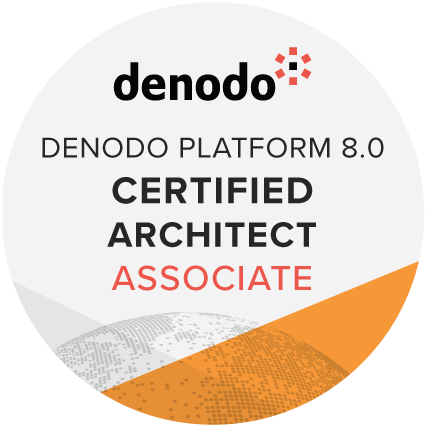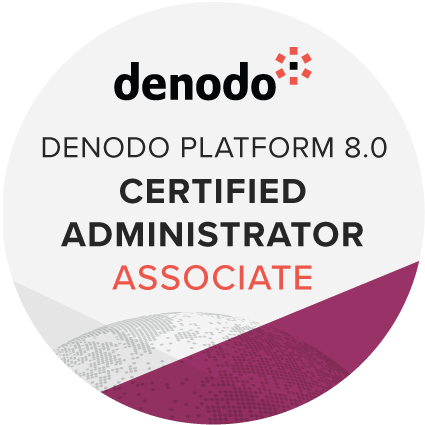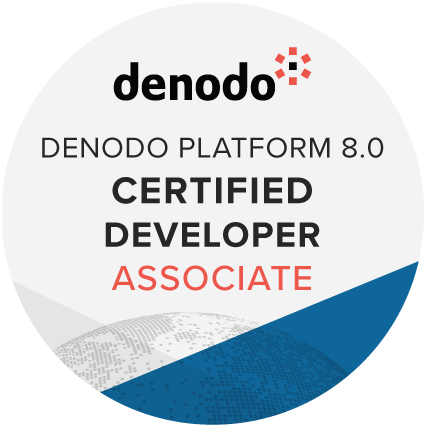Denodo Services

La multiplication des sources de données et les risques croissants en termes de sécurité sont des exemples d’une gestion des données de l’entreprise qui devient toujours plus complexe. Cela ne réduit pas pour autant les besoins d’accès aux données des équipes métier. Au contraire, ceux-ci se multiplient.
Les entreprises se trouvent donc face à de nombreux enjeux :
- Simplifier le Système d’Information et renforcer les référentiels
- Supporter les experts data tout en protégeant les données opérationnelles
- Adapter l’IT a un écosystème en pleine mutation & rester interopérable
- Apporter de l’autonomie à tous les départements
- Garantir la sécurité et la bonne gouvernance des données
- Equiper les équipes dans un contexte de budgets limités
Contraste vous accompagne dans la définition d’une meilleure gouvernance de données et la sécurisation de votre Système d’Information grâce au passage à la virtualisation des données. Dans ce domaine, Denodo est la plateforme leader du marché.




What is Data Virtualization ?
Data virtualisation is a logical data layer that integrates all enterprise data across different systems. It manages all the unified data to secure and govern it centrally, and then deliver it in real time to business users. Unlike ETL solutions, which replicate data, the virtualisation layer leaves the data in the source systems and only shows an integrated view of all the data to users.
For the first time, a technology allows you to implement a data delivery strategy:
- Independent of the sources where you store and process your data
- Independent of the consuming applications
- Independent of the location of deployment
Data Governance and Protection
We provide advice on the implementation of the necessary steps for good data governance. We also support you on the definition of control committees, roles and responsibilities, policies or external control rules, security and privacy rules.
By providing a single point of access to all data, the virtualisation layer enables architects to centrally govern and secure data. Architects can control data governance to enforce strict access controls and it integrates with IdP, SSO and AD systems. It isolates critical source systems from users and applications to prevent unintentional data changes.
Data virtualisation abstracts disparate systems, allowing architects to migrate legacy systems to modern cloud applications without disrupting business operations.
Flexibility
Data virtualisation allows the separation of processing and storage from data delivery. It offers the flexibility to change the back-end without impacting the business.
Data virtualisation allows data architects to design modern architectures by abstracting the complexity of accessing data from countless sources. They are also able to adapt to rapidly changing business needs with agility.
Decision-making
It allows the adoption of predictive and prescriptive analysis using all available data.
It allows business leaders to make decisions quickly, be competitive and improve company performance, while saving money (sales report generation, team load, etc.)
Cost savings
Savings are related to faster development and test cycles (-80%), reuse of data services, better and earlier engagement with business stakeholders and faster profitability through data.
It also leads to savings in software licensing costs (applications, ETL, database, storage infrastructure).
Evolutions & industrialisation
We support your IT and business teams in learning how to use the solution, ensuring a high degree of autonomy.But if you need it, we're here to help.
Our team helps your company with the extension of the solution to other domains or new data sources, regular support of the teams so that the solution always meets expectations.
A team is also available at all times to help you solve technical problems or problems using the platform.
Easy access to data & productivity
With a zero replication approach, data virtualisation allows users to access information in real time. It is estimated that data access time is reduced by 30% compared to ETL.
All users have one place to access all data, which is available in a number of standardised formats from any mainstream tool.
Data Virtualization has been shown to deliver a 300% increase in end-user productivity. This is because it delivers real-time data so that business users can access the freshest data in the course of their normal activities.